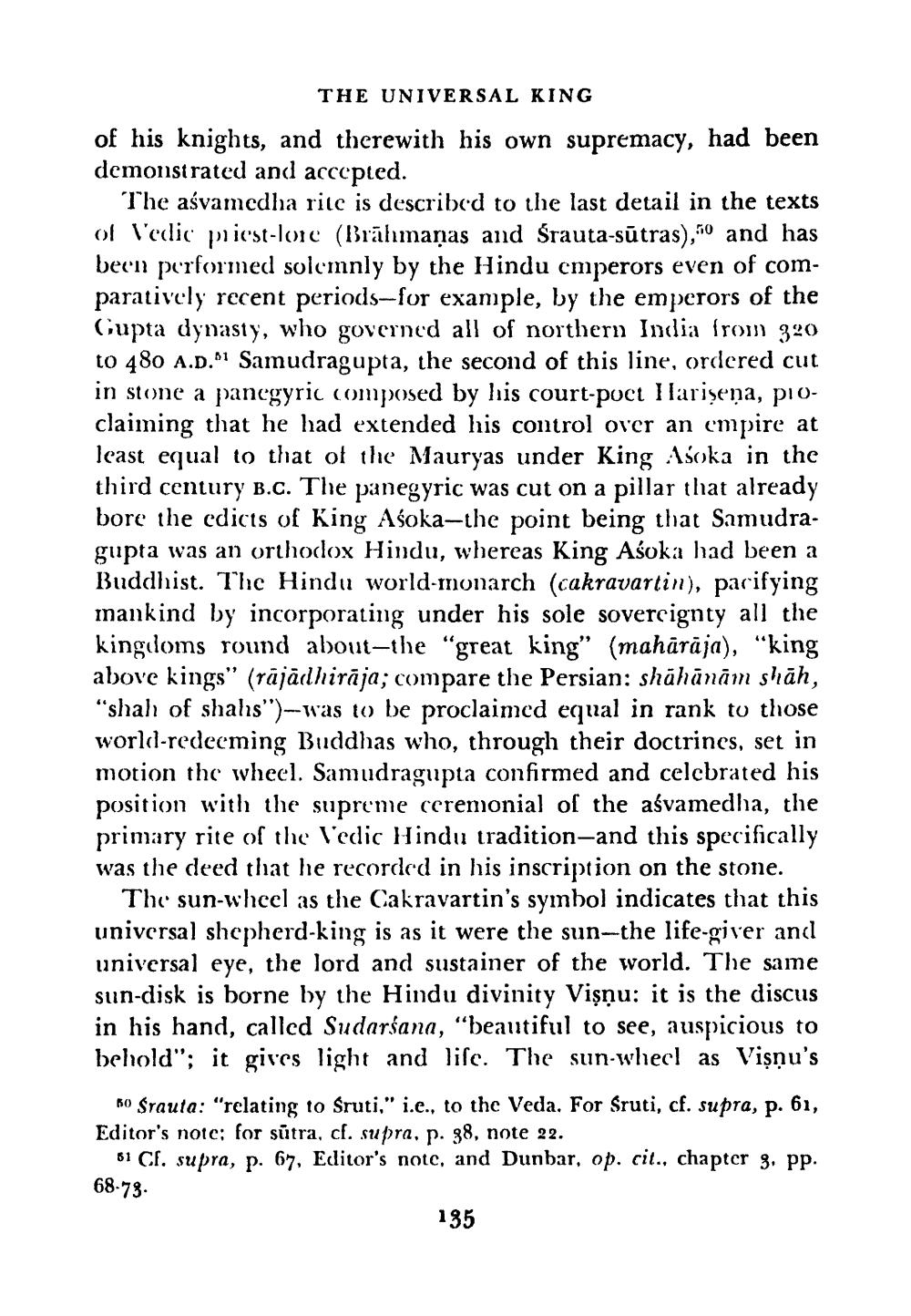________________
THE UNIVERSAL KING of his knights, and therewith his own supremacy, had been demonstrated and accepted.
The aśvamedha rite is described to the last detail in the texts of Vedic priest-lore (Brāhmaṇas and Srauta-sūtras),"o and has been performed solemnly by the Hindu cmperors even of comparatively recent periods-for example, by the emperors of the Gupta dynasty, who governed all of northern India from 320 to 480 A.D." Samudragupta, the second of this line, ordered cut in stone a panegyric composed by his court-poet Ilarişeņa, pioclaiming that he had extended his control over an empire at least equal to that of the Mauryas under King Asoka in the third century B.c. The panegyric was cut on a pillar that already bore the cdicts of King Aśokathe point being that Samudragupta was an orthodox Hindu, whereas King Aśoka had been a Buddhist. The Hindu world-monarch (cakravartin), pacifying mankind by incorporating under his sole sovereignty all the kingiloms round about-the "great king” (mahārāja), "king above kings" (rājādhirāja; compare the Persian: shāhūnām shāh, "shal of shals") was to be proclaimed equal in rank to those world-redeeming Buddhas who, through their doctrines, set in motion the wheel. Samudragupta confirmed and celebrated his position with the supreme ceremonial of the aśvamedha, the primary rite of the l'edic Hindu tradition-and this specifically was the deed that he recorded in his inscription on the stone.
The sun-wheel as the Cakravartin's synbol indicates that this universal shepherd-king is as it were the sun-the life-giver and universal eye, the lord and sustainer of the world. The same sun-disk is borne by the Hindu divinity Vişņu: it is the discus in his hand, called Sudarśana, "beautiful to see, auspicious to behold"; it gives light and lisc. The sun-wheel as Vişnu's
BO Srauta: "relating to Sruti," i.e., to the Veda. For Sruti, cf. supra, p. 61, Editor's notc; for sūtra, cf. supra, p. 38, note 22.
61 Cl. supra, p. 67, Editor's note, and Dunbar, op. cit., chapter 3, pp.
68-73
195




